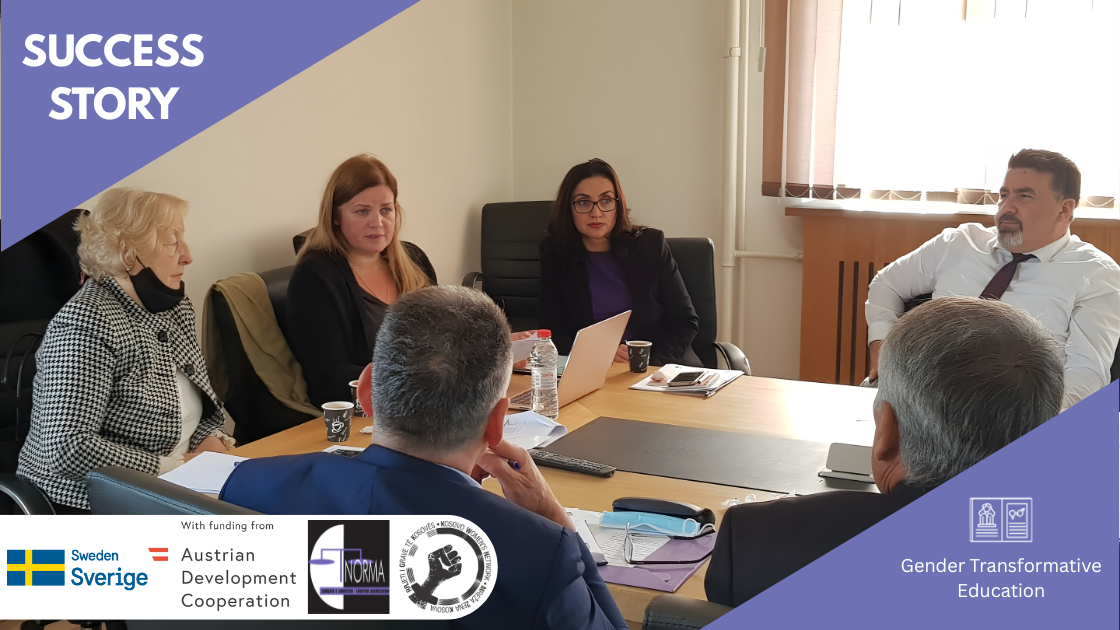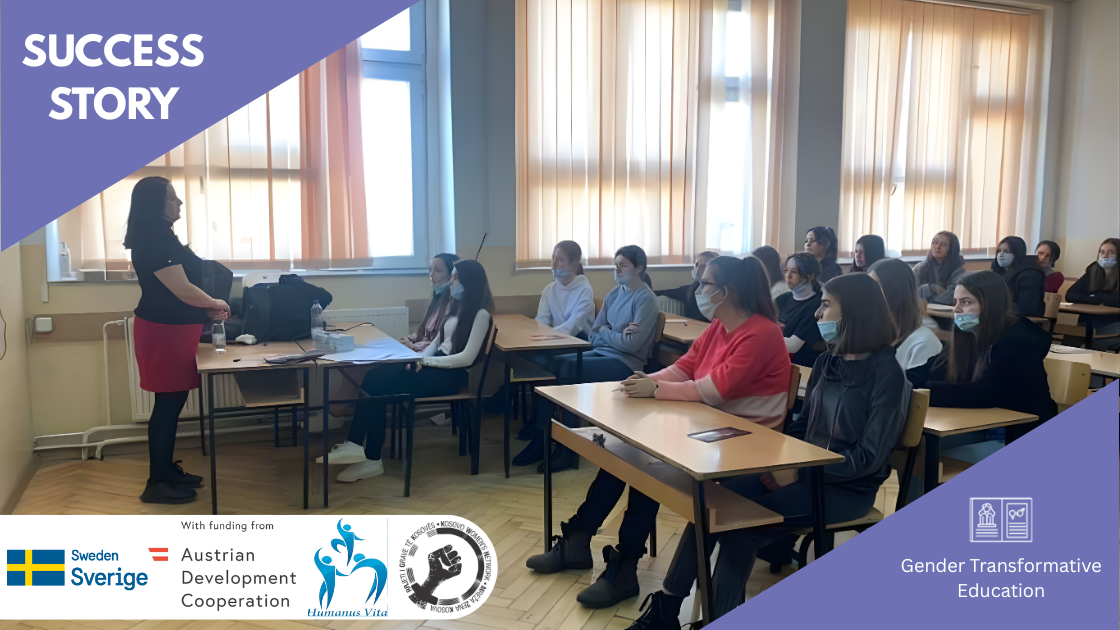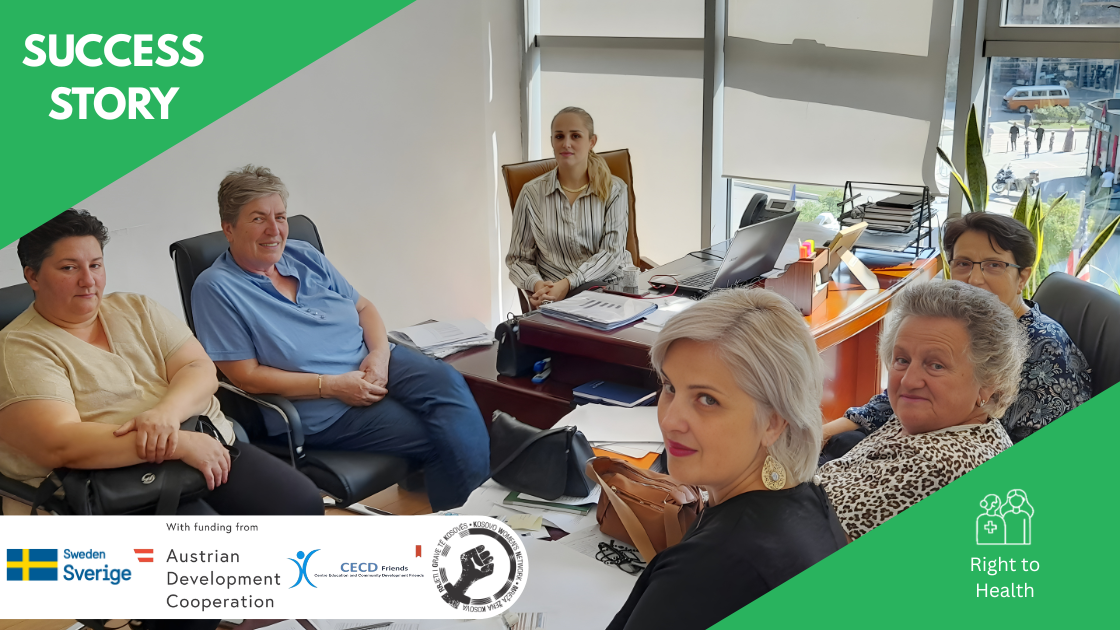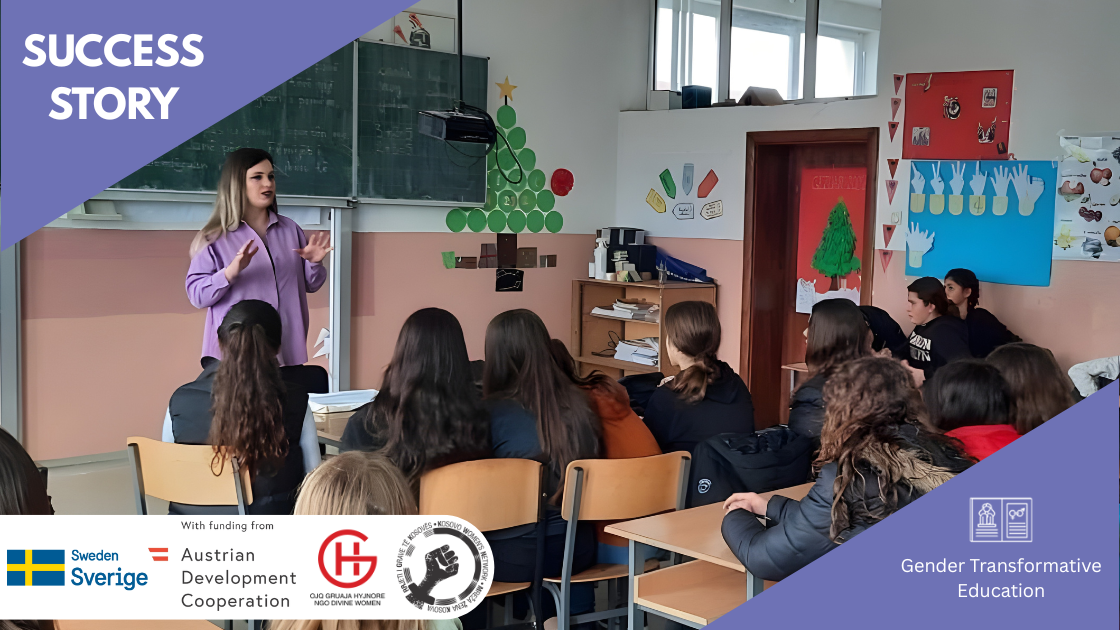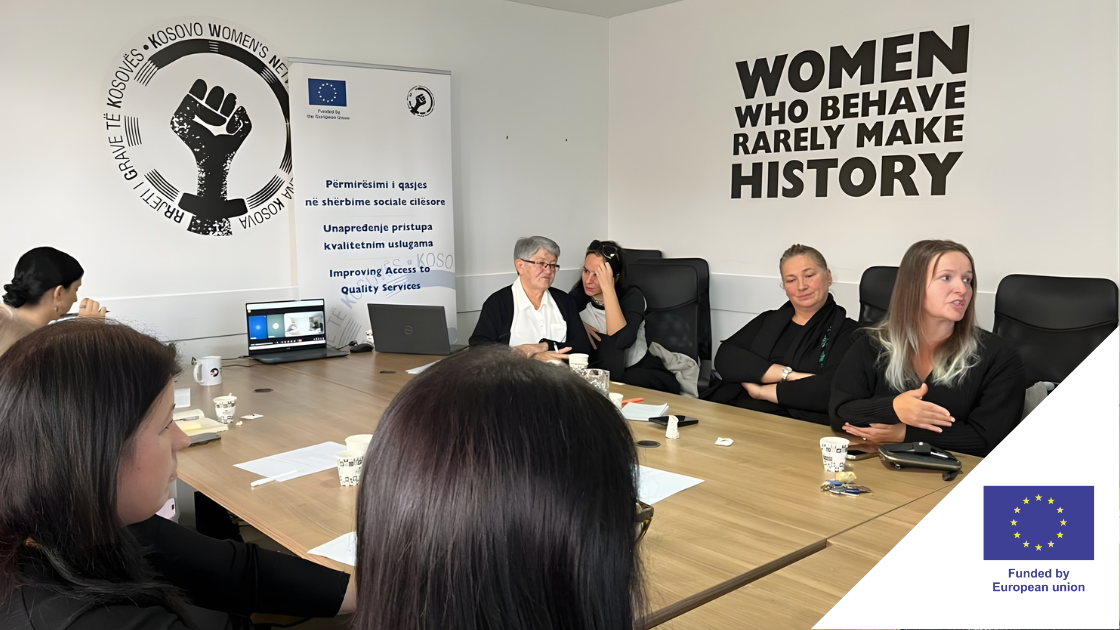Within the scope of the “Empowering Civil Society Organizations led by Women in Kosovo” initiative, financed by the European Union and managed by the EU Office in Kosovo, on 19 Feb. KWN organized a training on Effective Advocacy. During this training, participants had the opportunity to review elements of the advocacy cycle and discuss practical methods for developing advocacy strategies in order to apply to the Kosovo Women’s Fund (KWF).
During the first part of the workshop, participants discussed the importance of advocacy for promoting and protecting women’s rights and reviewed the advocacy cycle.
During the second part of the workshop, participants collaborated in groups to create strategies for effective advocacy, presenting these to other participants for input.
KWN members will be able to draw from these strategies in writing their project proposals for support from the Kosovo Women’s Fund.


